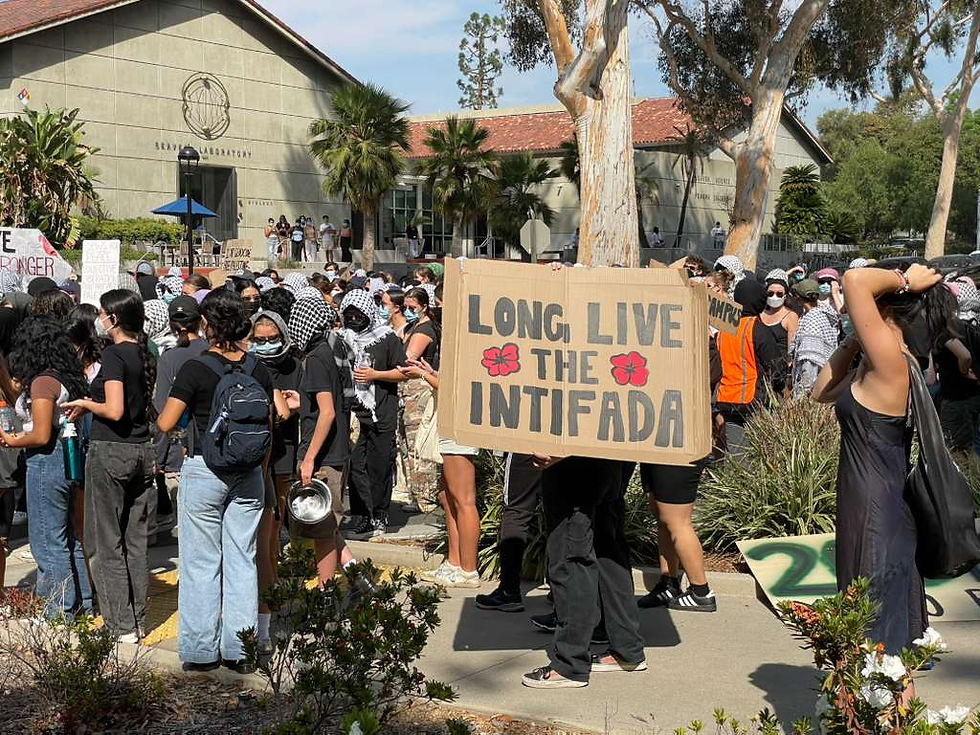The “Better Angels” and US-China Relationships
- The Claremont Independent

- Dec 5, 2018
- 3 min read
Producer William Mundell stated that the documentary Better Angels could “shatter myths Americans and Chinese have about each other.” Especially relevant with issues such as trade, jobs, and intellectual property theft taking the forefront of media today, the film did so, but instead of through facts, numbers, or interviews with important officials, it primarily follows the lives of ordinary Americans and Chinese.
Better Angels—which Claremont McKenna College alumnus David Dreier is a co-executive producer of (see the Independent’s interview with him here)—does have interviews with diplomats—including with former Secretaries of States Henry Kissinger, James Baker, and Madeleine Albright—along with other dignitaries. However, the film does not feel like a mundane documentary with interview after interview; for the bulk of the documentary—which Academy Award-winner Malcolm Clarke directs—dispels myths by simply following ordinary people.
The story of Memo Mata—a former US marine from a Texan border town—is the most telling example of mutual beneficence. Needing to support two children he fathered while in high school, Mata looks to the economic rise of China and the growing appetite of the Chinese middle and upper classes for an international education to make a new start in Shanghai, teaching at an international school.
Mata coaches American football, which transfers a much-needed skill to his students: teamwork. Chinese students are not known for cooperation, and by coaching his students this important skill during football practice, Mata sees his students apply teamwork to the classroom, cooperating with each other, and learning more effectively.
Mata’s story demonstrates the win-win exchanges Better Angels depicts; Mata is able to gain economically by working in China, and Chinese students benefit from the teamwork, which they lacked before, through football practices.
Likewise, Li Mianjun, an educator from China, brings the Shenmo learning system—which teaches students how to use the abacus, a traditional calculating tool—to south Los Angeles, improving the students’ abilities to think, and making them “more sensitive” to numbers.
Better Angels does take a jab at United States President Donald Trump’s accusations that China is taking American jobs by showing that globalization is colorblind when it chooses its victims; the documentary shows shoe factories moving from China to Africa, where production costs are drastically lower.
While some examples seem artificial and too-good-to-be-true, such as an ambitious project to open up a Chinese-funded Mississippi River port in Muscatine, Iowa—where Chinese President Xi Jinping famously stayed in the 1980’s as part of an agricultural delation—Clarke balances out these segments with more practical, realistic examples. One is where Chinese investment in a copper plant rekindles the economic hopes of Wilcox, Alabama—one of the poorest counties in the United States.
Although Better Angels—which according to Dreier was not funded by any money from China—does not address Trump’s accusations of forced intellectual property transfers, the film does not feel incomplete without it; the story it tells is that of ordinary Americans and Chinese benefitting from the economies of each other’s country.
During a Q&A session after the screening, Dreier stated that he “believes in the Ronald Reagan view,” where at the end of the day trade “creates wealth and reduces repression,” helping alleviate human rights issues.
“The more economic engagement, the [greater] number of people brought from poverty,” Dreier adds.
Whether the two traditional rivals can overcome their disputes remains to be seen—even after progress made between Trump and Xi at the recent G20 Summit—but the message of Better Angels is clear: the more economic and cultural interaction between the two countries, the more people benefit.
Dreier plans to have a screening of Better Angels—open to all students of the Claremont Colleges consortium—at Claremont McKenna College next semester.
Photo: Better Angels
.png)



Comments